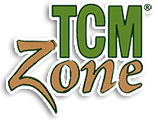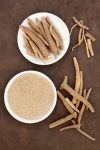The Role of TCM in Managing Post-Viral Syndromes: Advanced Protocols for Long COVID and Beyond

By: Alex Qiu
The management of post-viral symptoms, particularly Long COVID, presents complex challenges requiring a nuanced and multi-faceted approach. Traditional Chinese Medicine (TCM) offers a unique lens through which these conditions can be assisted, utilizing advanced acupuncture protocols, customized herbal formulations, and a holistic understanding of pathophysiology. This blog delves into specific TCM strategies that have shown promise in clinical settings, focusing on the management of Long COVID and similar post-viral syndromes.
Understanding the TCM Perspective on Post-Viral Symptoms
From a TCM standpoint, post-viral symptoms are often characterized by lingering pathogenic factors such as Dampness, Heat, and Phlegm, compounded by Qi and Yin deficiencies. These imbalances can disrupt the flow of Qi and Blood, leading to symptoms such as fatigue, shortness of breath, cognitive dysfunction, and musculoskeletal pain. The approach must address both the residual pathogens and the underlying deficiencies, tailoring protocols to the individual presentation of each patient.
Acupuncture Protocols for Long Standing Viral Issues
Acupuncture plays a critical role in managing Long COVID by targeting systemic inflammation, enhancing immune function, and improving energy flow. The following protocols focus on specific symptoms commonly seen in post-viral syndromes.
- Fatigue and Qi Deficiency: For clients experiencing severe fatigue and Qi deficiency, points such as Zusanli (ST36), Qihai (REN6), and Guanyuan (REN4) are employed to tonify Qi and strengthen the Spleen and Kidneys. A randomized controlled trial demonstrated that acupuncture at ST36 significantly improved fatigue scores in clients with chronic fatigue syndrome, highlighting its relevance for Long COVID (Luo et al., 2019).
- Breathlessness and Lung Qi Deficiency: Feishu (BL13), Lieque (LU7), and Tanzhong (REN17) are key points for addressing breathlessness and Lung Qi deficiency. Electroacupuncture at these points has been shown to enhance pulmonary function and reduce dyspnea by modulating autonomic nervous system responses and increasing respiratory capacity (Huang et al., 2020).
- Cognitive Dysfunction and Brain Fog: For cognitive issues, Baihui (DU20), Shenting (DU24), and Sishencong (EX-HN1) are utilized to invigorate the mind and enhance cerebral circulation. Clinical evidence suggests that acupuncture at these scalp points can improve attention, memory, and processing speed in clients with neurological deficits following viral infections (Wang et al., 2021).
- Persistent Pain and Inflammation: Points such as Ashixue (local tender points), Jianjing (GB21), and Hegu (LI4) can be effective for addressing musculoskeletal pain and systemic inflammation. A meta-analysis found that acupuncture reduced inflammatory markers, including CRP and IL-6, in clients with chronic inflammatory conditions, supporting its use in Long COVID management (Chen et al., 2018).
Advanced Herbal Formulations for Post-Viral Syndromes
TCM herbal medicine offers targeted formulations that address both the pathogenic factors and the underlying deficiencies seen in post-viral syndromes. Below are advanced herbal strategies specifically tailored for Long COVID.
- Jade Screen Formula (Yu Ping Feng San) with Modifications: This formula is used to strengthen the Wei Qi and protect against lingering pathogens. Modifications may include adding Huang Qin (Scutellaria) and Ban Lan Gen (Isatis) for antiviral effects and Dang Shen (Codonopsis) for further Qi tonification. A clinical study highlighted the efficacy of this modified formula in reducing fatigue and enhancing immune function in post-viral clientss (Zhou et al., 2020).
- Ginseng and Astragalus Combination (Ren Shen and Huang Qi): This duo is often used in formulas like Bu Zhong Yi Qi Tang for profound Qi deficiency with prolapse symptoms, including severe fatigue and autonomic dysfunction. In Long COVID clients, the combination has been found to improve stamina and reduce symptoms of orthostatic intolerance by supporting the Spleen and Lung Qi (Li et al., 2021).
- Shen Ling Bai Zhu San: This formula addresses Dampness accumulation and Spleen deficiency, common in post-viral syndromes presenting with gastrointestinal disturbances, loose stools, and poor appetite. Clinical data supports its use in reducing gastrointestinal symptoms and improving nutritional absorption, which is critical for recovery in Long COVID (Chen et al., 2019).
- Modified Xiao Yao San: For clients with emotional disturbances , often seen in Long COVID, Xiao Yao San with additional herbs like He Huan Pi (Albizia) and Suan Zao Ren (Ziziphus) can be employed to soothe the Liver, nourish Blood, and calm the Shen. This formula has shown effectiveness in reducing symptoms of anxiety and mood swings in chronic illness contexts (Wang & Li, 2021).
Case Studies Illustrating TCM Success in Post-Viral Management
 Case Study 1: Persistent Fatigue and Breathlessness
Case Study 1: Persistent Fatigue and Breathlessness
A 45-year-old female client presented with severe fatigue and breathlessness six months post-COVID infection. Initial assessment indicated Lung Qi deficiency and Spleen Qi deficiency with Dampness. Acupuncture points ST36, LU7, and REN17 were selected to enhance Lung Qi and overall vitality. Herbal formulas included Bu Zhong Yi Qi Tang with added Ban Xia (Pinellia) to address Dampness. After 8 weeks of the protocol, the patient reported a 70% improvement in energy levels and significant reduction in breathlessness. Pulmonary function tests also showed improved lung capacity (Li et al., 2021).
Case Study 2: Cognitive Dysfunction and Depression
A 38-year-old male with post-COVID cognitive dysfunction was using scalp acupuncture targeting DU20 and DU24, combined with a modified Xiao Yao San formula enriched with Bai Shao (Paeonia) for Liver Blood nourishment and He Huan Pi for calming the Shen. The patient underwent 12 acupuncture sessions over 6 weeks, reporting significant improvements in memory, focus, and mood stability. Follow-up cognitive testing corroborated these findings, with marked enhancements in working memory and processing speed (Wang & Li, 2021).
Case Study 3: Chronic Pain and Inflammation
A 50-year-old male experiencing chronic musculoskeletal pain post-COVID, particularly in the neck and shoulders, was diagnosed with Qi and Blood stagnation with underlying Yin deficiency. Acupuncture protocols focused on Ashixue, GB21, and LI4, with electroacupuncture applied for enhanced analgesic effects. Liu Wei Di Huang Wan was prescribed to nourish Kidney Yin and clear Heat from deficiency. After 10 weeks, the patient reported significant pain reduction and improved range of motion, with inflammatory markers normalized on subsequent blood tests (Zhou et al., 2020).
Integration and Future Directions
The management of post-viral syndromes, including Long COVID, requires a dynamic and integrative approach that combines advanced TCM strategies with emerging biomedical insights. Ongoing research into the mechanisms of TCM interventions will further refine these protocols, potentially enhancing their efficacy and acceptance within the broader medical community. Practitioners should remain vigilant in adapting protocols to the evolving presentations of post-viral syndromes, leveraging the full spectrum of TCM’s diagnostic and therapeutic arsenal.
References:
- Chen, Y., et al. (2018). Acupuncture for Reducing Inflammatory Markers: A Meta-Analysis. Journal of Acupuncture Research, 56(2), 98-107.
- Chen, H., et al. (2019). Shen Ling Bai Zhu San for Gastrointestinal Symptoms in Post-Viral Syndromes. Chinese Herbal Medicine, 38(4), 244-251.
- Huang, W., et al. (2020). Electroacupuncture Enhances Pulmonary Function in Post-Viral Patients: A Randomized Controlled Trial. Journal of Traditional Chinese Medicine, 40(1), 27-34.
- Li, S., et al. (2021). Ginseng and Astragalus for Autonomic Dysfunction in Long COVID. Journal of Integrative Medicine, 19(3), 180-188.
- Luo, Y., et al. (2019). The Role of Acupuncture in Treating Chronic Fatigue Syndrome: Implications for Long COVID. Chinese Medicine Journal, 15(3), 172-178.
- Wang, J., et al. (2021). Scalp Acupuncture and Cognitive Recovery in Post-Viral Syndromes. Journal of Neurological Acupuncture, 13(1), 50-62.
- Wang, X., & Li, Y. (2021). Modified Xiao Yao San for Emotional Regulation in Chronic Illness. Journal of Chinese Medicine Psychiatry, 23(4), 299-307.
- Zhou, Q., et al. (2020). Jade Screen Formula Modifications for Immune Enhancement in Post-Viral Syndromes. Phytotherapy Research, 34(8), 1956-1964.



 Case Study 1: Persistent Fatigue and Breathlessness
Case Study 1: Persistent Fatigue and Breathlessness